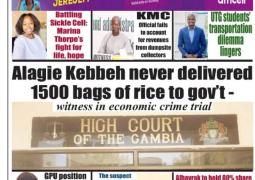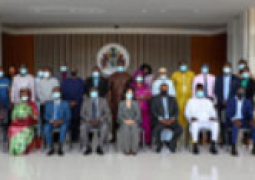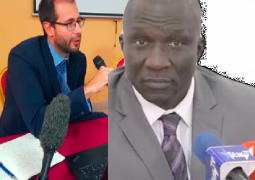
Feyi Boroffice was speaking on Wednesday during the second Steering Committee Meeting in the country’s Turn Around Allocation Strategy held at the Sir Dawda Kairaba Jawara International Conference Centre.
She underscored the importance of the event, saying it provides an opportunity to take stock in the implementation of the country TAA Strategy.
“The Gambia has actually become a model for the TAA process, as the country has demonstrated the value of extensive consultations with relevant stakeholders from government agencies, Civil Society Organisations, multilateral, development and bilateral partners,” she said. “Let me join the Ministry of Finance and also our UN colleagues in welcoming you to this second TAA Steering Committee meeting. Last year, this committee met together with other several sectoral ministers, partner and key stakeholders to define the role in reviewing progress towards the achievement of TAA milestone.”
The move, she added, is an important role as the milestone of the Turn Around Allocation supports the country’s continued eligibility for the TAA envelope for the upcoming fiscal year.
The WB country rep further disclosed that The Gambia’s continued access to the TAA is reviewed annually.
To this end, she commended the Government of The Gambia for the significant progress made through the last fiscal year 2023, saying they’ve achieved most of the milestones that were identified, achievements for which she congratulates the country.
She acknowledged that since the country first gained TAA access in November 2021, “significant gains” have been made on the government’s strategic role, centred around restoring trust between the citizens and the state, good governance, sustainable land management and access to basic services.





